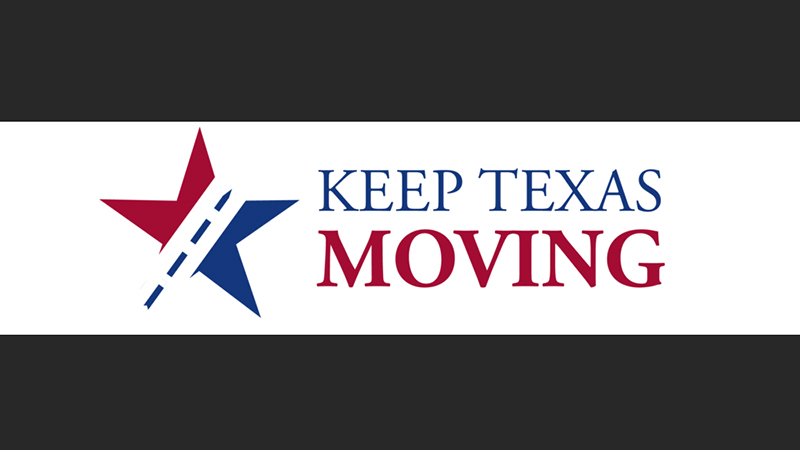Coalition for improving roads, creating jobs, stimulating economic recovery launches in Golden Triangle
Published 12:16 am Thursday, August 20, 2020
|
Getting your Trinity Audio player ready...
|
BEAUMONT — In the face of a financial crisis from the coronavirus and falling energy prices, and with transportation needs already outpacing the state budget, Beaumont-area business and community are urging state lawmakers to explore innovative funding sources to build and improve highways and bridges in Texas.
The Texas Association of Business, this week, hosted the regional launch of Keep Texas Moving, a coalition to support innovative infrastructure investment in Texas to spur economic recovery, create jobs and build a better transportation system. The goal is to leave taxpayer dollars available for other essential spending priorities.
Because of COVID-19 and depressed energy prices, all of the Texas Department of Transportation’s primary funding sources are suffering, including oil severance taxes, motor vehicle sales taxes and gasoline tax revenues.
Texas Comptroller Glenn Hegar recently announced an expected budget shortfall of nearly $5 billion when lawmakers reconvene in January 2021.
The pandemic hit tax revenues hard across the board, especially those revenues funding TxDOT and transportation. Oil and gas severance taxes flowing into TxDOT’s State Highway Fund are estimated to drop by almost half in the near future, the comptroller said.
“Beaumont and Golden Triangle residents and business leaders know that transportation improvements are critical to our state’s safety, economic opportunities, quality of life and can stimulate job growth and speed our economic recovery from the COVID and energy crises that continue to ravage our entire economy,” said Aaron Cox, senior vice president of the Texas Association of Business. “That’s why it’s time that Texas again look to the private sector, public-private partnerships and solutions like optional toll lanes to address the serious funding shortfall facing our state’s transportation system.
“Allowing private investment for major highway development would offset state revenue losses and could allow available Texas tax dollars to be spent in other critical areas such as Medicaid, public safety and public education.”
Texas voters support these efforts, business leaders said. The Association released the results of a public opinion survey of 502 Texas voters by Morning Consult that found:
- 84 percent of Texas voters believe it is very or somewhat important for Texas leaders to address infrastructure next year. Texans trust state or local governments (42 percent) more than the federal government (22 percent) to handle infrastructure.
When informed about transportation issues:
- 72 percent of Texas voters support public-private partnerships as a way to fund highway and other infrastructure projects;
- 71 percent of voters said that giving drivers the option to get to their destinations more quickly by paying a toll is an important benefit of a public-private partnership;
- 82 percent of voters agree that using public-private partnerships will free up public funds for other government programs; and
- 94 percent said the most important outcome of public-private partnerships is increasing local jobs.
The survey was conducted by Morning Consult June 1-5 and has a margin of error of plus- or minus-4 percent.
Although TxDOT is not currently authorized to use private financing, Texas lawmakers have embraced these funding sources in the past, including during the early 2000s recession and the 2008 financial crisis, to improve Texas roads at little or no cost to Texas taxpayers.
Prior to 2017, the state authorized the private sector to design, build, manage and maintain billions of dollars’ worth of new highways, creating new jobs and alleviating traffic gridlock for hundreds of thousands of Texas motorists across the state.
Texas’ growth and need for better infrastructure is well documented. According to demographic and census data:
- Texas will grow by 12 million people in the next 20 years, from 29 million today to more than 40 million by 2040. The economy is expected to double by 2050.
- Each day, Texas adds more than 1,000 new people and hundreds of vehicles to our roadways.
- According to U.S. Census data released in 2019, among the top 15 cities with the highest growth rate, about half were in Texas.
Cox noted that Texas leaders have gone above and beyond to identify and implement new transportation resources in recent years.
However, the need is still outstripping available funding, Cox said, noting that the current 10-year state transportation budget would need to nearly double by 2050 to keep pace with population projections.
According to recent Texas reports:
- Roadway congestion is now at its worst level since the Texas A&M Transportation Institute began tracking traffic congestion in its Urban Mobility Report in the early 1980s.
- Texas A&M Transportation Institute’s 2019 ranking of Texas’ most congested roadways illustrates a familiar theme — growth-induced traffic gridlock is getting worse every year. Dallas’ Woodall Rodgers Freeway is among the state’s most gridlocked roadways.
“TAB’s Keep Texas Moving coalition is all about fixing Texas roads and creating jobs while harnessing the power of the private sector to help pay for needed transportation improvements,” Cox concluded.
For more information, visit txbiz.org/keep-tx-moving.



